By Carol K. Adii
October 25 was the World Spina Bifida and Hydrocephalus Day. The National Institute of Neurological Disorders and Stroke defines spina bifida as a congenital anomaly where the spinal column does not develop normally during the first weeks of pregnancy.
This causes permanent damage to the spinal cord and nervous system, and can result in paralysis of the lower limbs or problems with bowel and bladder function.
According to a medical journal titled: Prevention of spina bifida: Folic acid intake during pregnancy in Gulu district, northern Uganda written by Dr Peter Kirabira, the head of research at International Health Sciences University and other health workers, an estimated 1,400 children are born with spina bifida in Uganda annually.
The condition is attributed to the absence of folic consumption by pregnant women, lack of pre-natal care, high exposure to environmental risk factors, such as dioxins and fumonisins intake.
Ephrance Nadongo’s Story
What would it take for one with the condition to attain an education? Ephrance Nadongo, shares her story. At birth, Nadongo, 23, was diagnosed with spina bifida.
At only three days old, she had to undergo surgery at Mengo Hospital.
After the operation, she suffered hydrocephalus, a condition that occurs when fluids build up in the skull and causes the brain to swell. A shunt was later placed to help drain fluid from her brain to her abdomen where it is absorbed. She moves with the help of a crutch.

Rocky Start In School
While at Bridge Schools in Zzana, near Kampala at the primary level, Nadongo was unable to control urine. It would pass freely, giving her a foul odour.
With time, “I started training myself to feel the urine so I could hold it because I did not want to visit the toilet more frequently than others, which resulted in numerous urinary tract infections, before I got a catheter,” she said.
At the age of 10, a catheter was inserted in her bladder through which she passed urine. A teacher had to be paid to create a private space where Nadongo could change the catheter.
Controlling the passing of urine was not Nadongo’s only challenge. She was called names that she says made her feel traumatised. “Since my legs are weak and I cannot walk properly, I was called a duck,” she said.
Her performance at school also took a hit. “I was a slow learner, but was taught at the same pace as other pupils. I was always blamed for poor performance, yet I was being affected by my disability.”
Access was another challenge she faced at school. It was a storeyed structure that lacked ramps.
“Most of the time, I would miss school assembly because I was afraid of being pushed by fellow learners.” She also feared playing with other pupils for fear of injury.
For school tours, I had to go with my sister to help take care of me,” Nadongo said.
The other obstacle she says is the lack of sufficient medical facilities equipped to manage people with disabilities.
“There is only one hospital in Uganda that treats hydrocephalus, that is, CURE Hospital in Mbale. With little or no sensitisation, many children die out of ignorance,” Nandogo said.
Pursuing Her Dream
After Senior Four, she lacked tuition fees to go to A’level and pursued a diploma course.
“Based on my experience at school, my dream was to become a teacher for learners with disabilities to inspire them to achieve their potential.”
She attained a diploma in child care at Namasuba College of Commerce on Entebbe Road.
Although, she says getting a teaching position was a hurdle. “I sought vacancies in normal schools, but most head teachers rejected me saying I was needy,” she said.
She kept up the search, until she got a vacancy at Bridges Primary School in Zzana and at Embrace Kuiture Disability School in Entebbe. Those schools handle children with special needs. “I teach empowerment and advocacy,” she said. Nandogo, who is also a motivational speaker, wants to empower the youth to be independent.

What Should Teachers Do?
According to the World Health Organisation, approximately 10% of any population is disabled.
It also estimates that of the 10%, only 5.8% of persons with disabilities need special care.
The United Nations Standard Rules on Equalisation of Opportunities for PWDs (1991) urges all nations to show strong commitment on the equalization of opportunities for persons with disabilities (PWDs).
In Uganda, in 2014, the Ministry of Education and Sports embarked on the special needs education programme, which provides guidance on delivery of inclusive education.
The aim was to enable early identification of children with impairments for intervention, develop specialised skills training for teachers and procure specialised instructional materials for enhancement of inclusive education.
“Teachers must have a course about disability so that when they start teaching they have an idea of how to handle children with special needs,” Benard Ouma Wabwire, a programmes manager at Katalemwa Cheshire Home, says.
However, for the most part, “Inclusive education has remained on paper. Braille papers and machines are not yet procured, monitoring and supervision is not being done in schools and the proposed 250 teachers have not been trained in functional assessment,” Gerald Kasirye, a teacher at Mirembe Primary School in Busega, says. Wabwire adds that to make matters worse, teachers demand a lot of money from disabled student to support them
Nadongo’s Advice To Youth
- Accept your condition and do not think that is the end of the world.
- Love yourself such that even when others make hurtful comments about your condition, you can stand strong.
- Learn life skills for your survival and determine to become as independent as possible, so that others will not make you feel like you are a burden to them.
- Join a support group with people living with disabilities for counselling and support to navigate the different challenges. “When I joined a disability support group, I realised I was not the only one facing the challenges I did. I also had a supportive family, especially my father, who always told me I was the most beautiful girl.”
- Be open about the condition. “At school, I explained my disability to others, some of who were sympathetic.”
- Never compare yourself to anyone else as people have different abilities.
- Always think big. You can pursue academics and vocational skills.
Finding Love
Nandogo has a fiancé and she says the two are walking down the aisle soon. Her fiancé helps her pick her medicine from Katelemwa.
“Before I met my fiance, the other men pursuing me would leave as soon as they learnt of my condition. I would tell them from our first date that I have a shunt and because of it, I cannot give birth normally and the men fled. Only my fiancé stayed,” she said.
She encouraged girls who are living with disability and have reached the age of dating to be open with the men pursuing about them about their conditions.
“When my fiancé took me to his family, many discriminated against me. Fortunately, they asked a lot of questions about my condition but when they got to know me well, their attitude changed,” she recalled.
What Others Say
Oliver Nabiryo, an occupational therapist at Katelemwa
Nandogo is friendly and hardworking. She advocates the rights of children living with disabilities. Despite her condition, nothing can stop her from achieving her dream.
Proscovia Ajok, a youth living with spina bifida
I don’t see her as a friend, but as a sister, she has inspired me to accept myself. She has a positive attitude towards life.
Rahuma Nakidde, a mother
As I was on through Facebook, I came across Nandogo, who has the same condition with my son. I am older than her, but she encouraged me to take good care of my baby. Her counselling keeps me going.
Isaac Kugonza, fiance I met her in 2015 during a youth meeting in Gulu. I fell in love with her because she had good qualities of a person who is well brought up. She is down to earth, that is why I have plans to see that we bring up children who would look up to us as examples and also learn how to help others


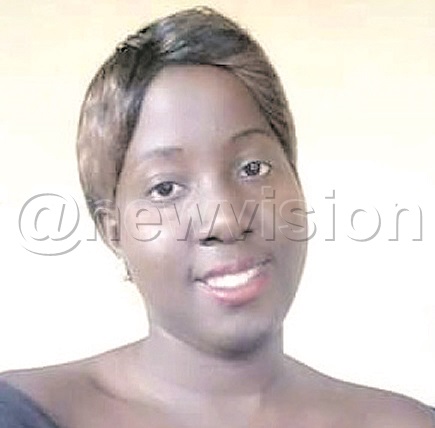
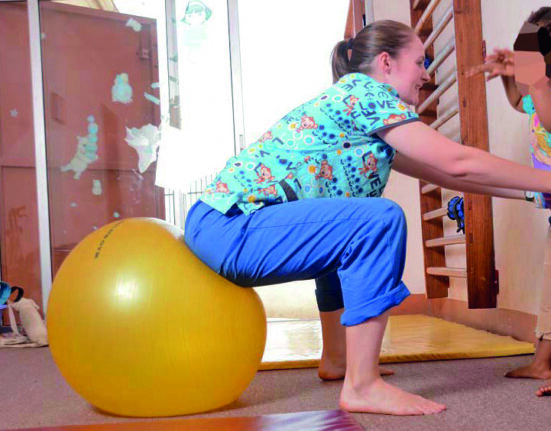
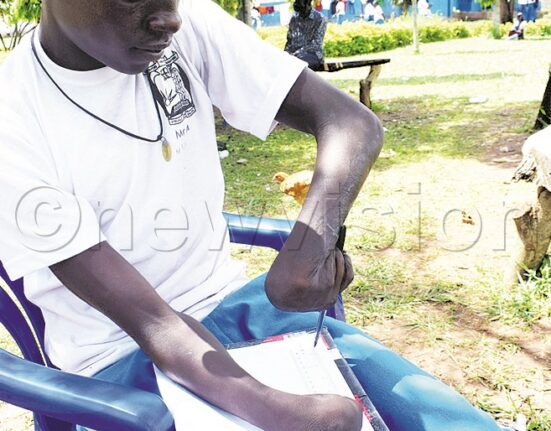
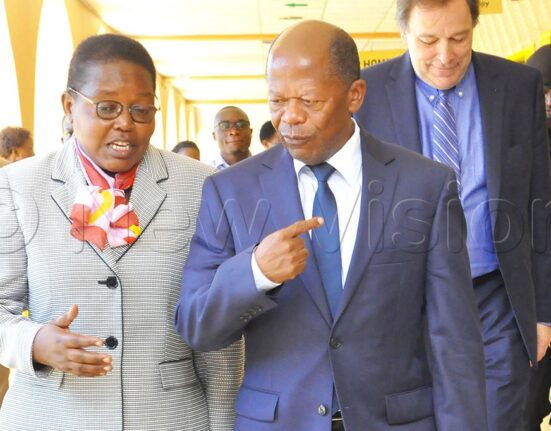
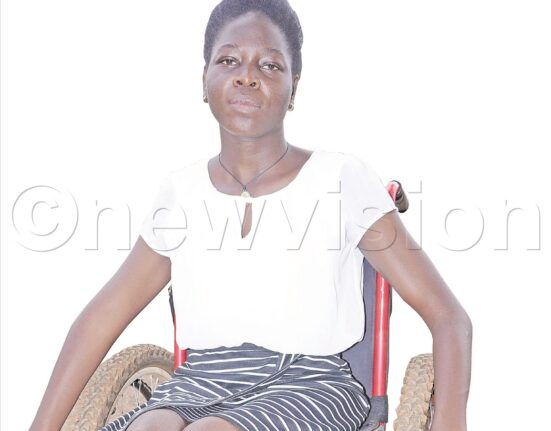
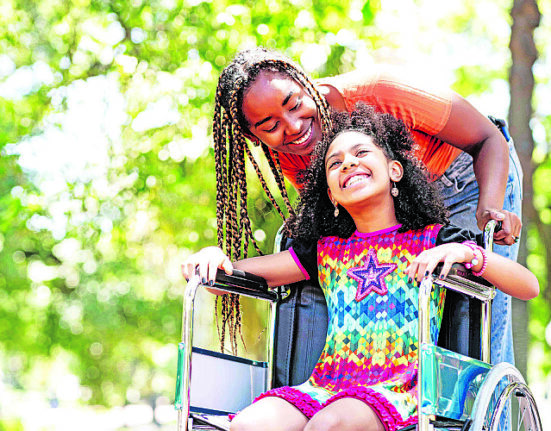
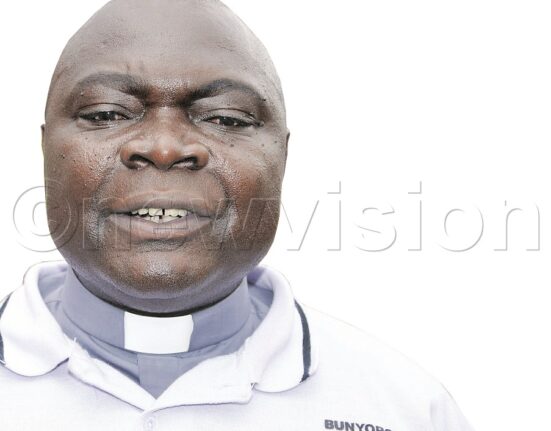
Leave feedback about this